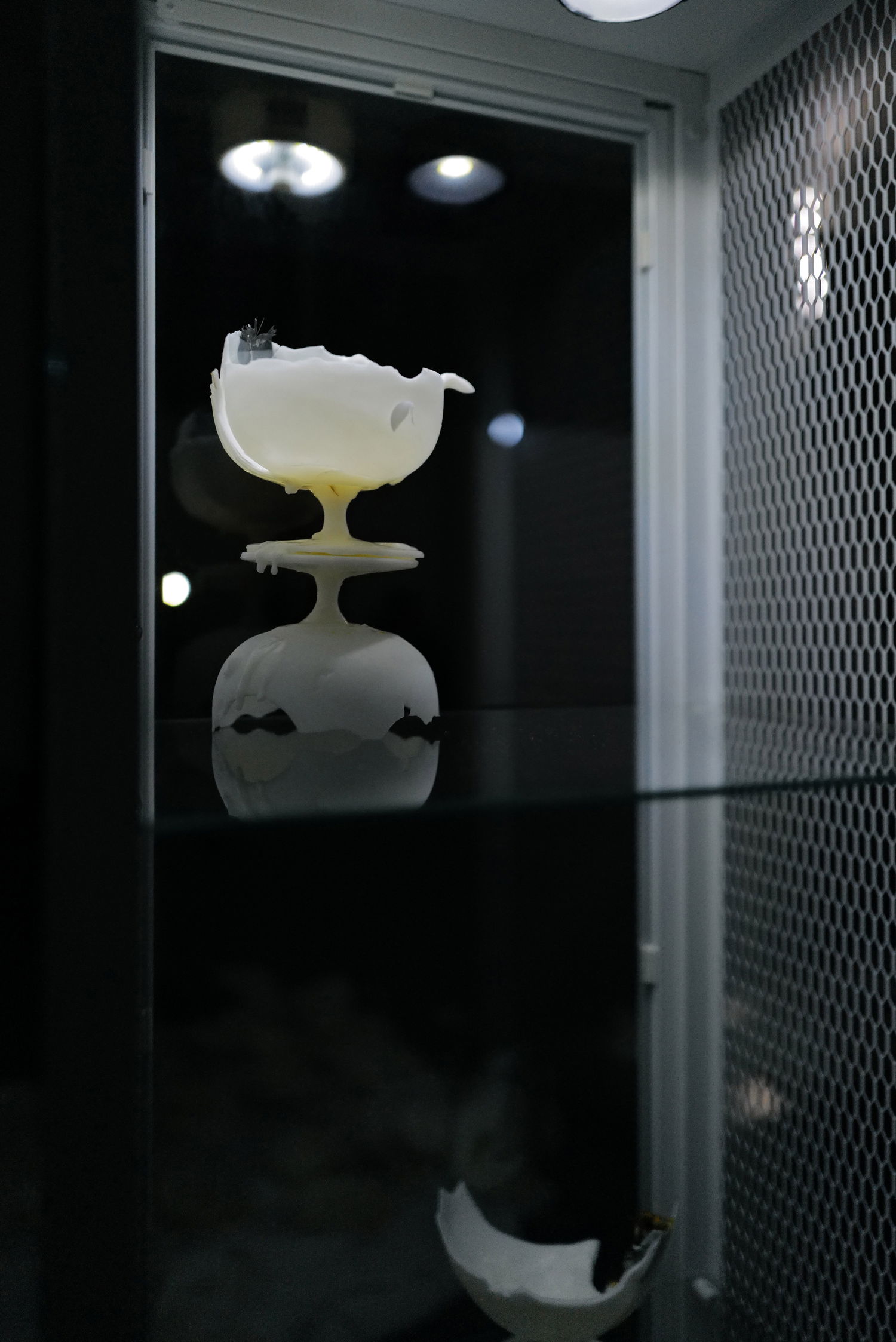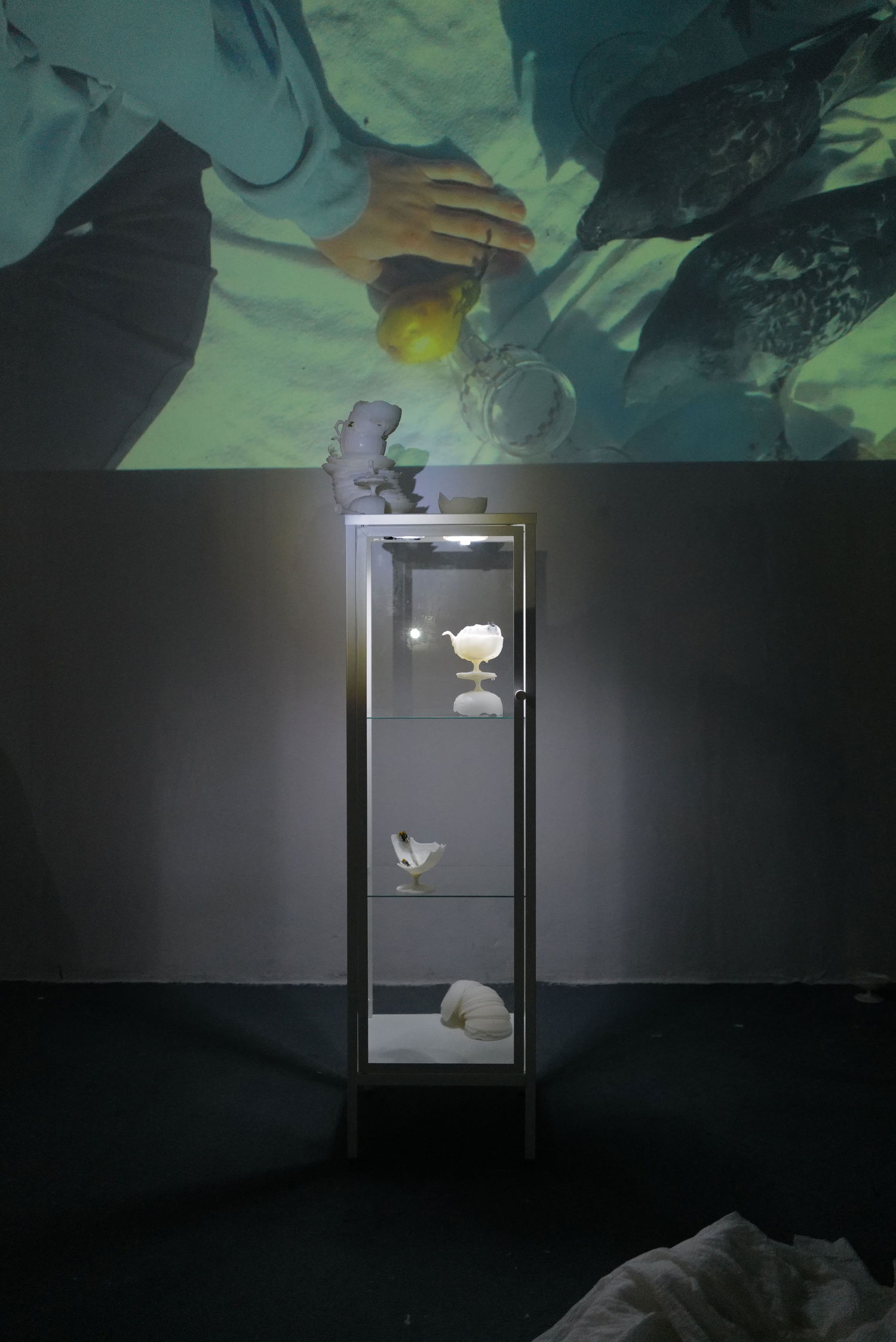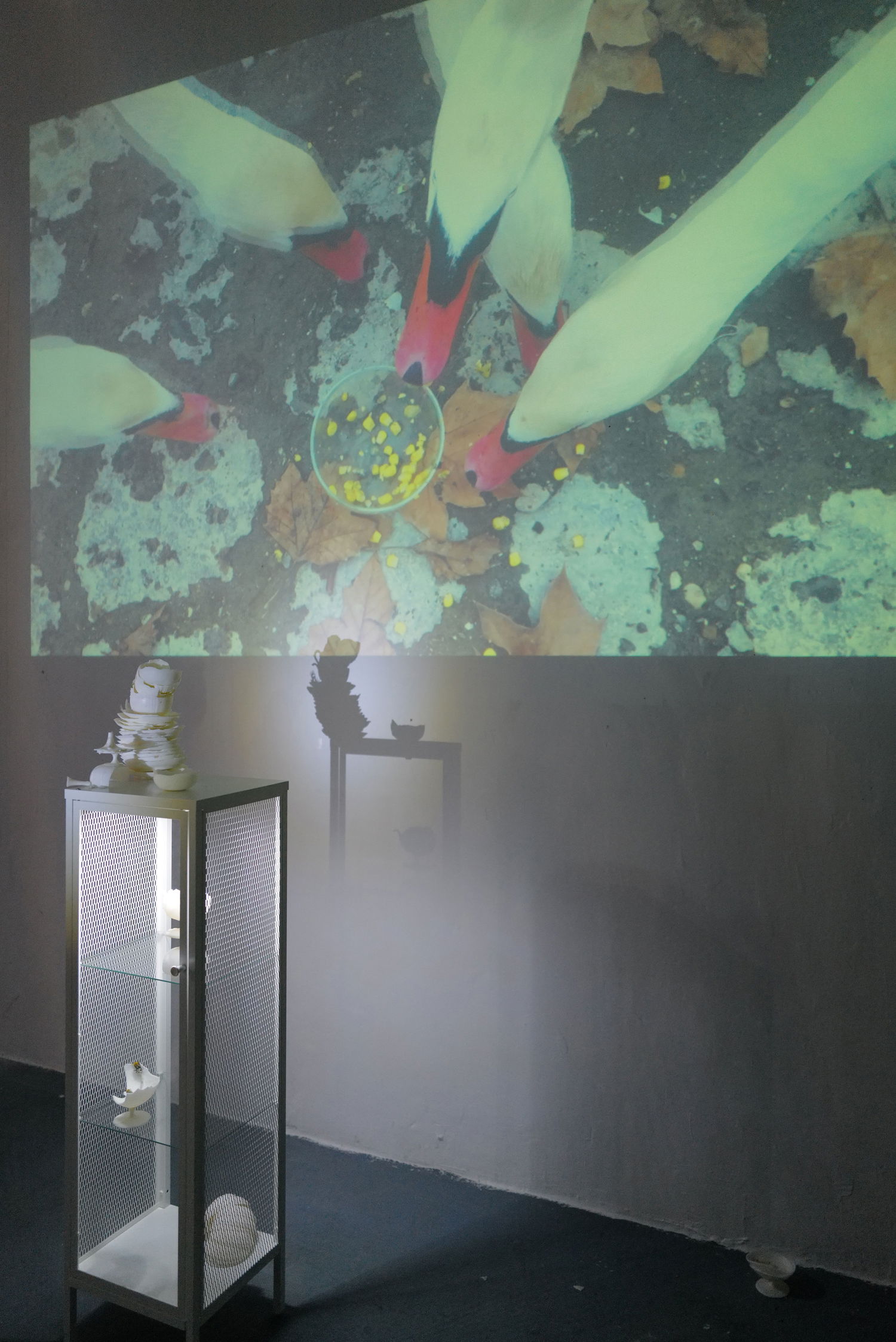In the project Parasites, the precariousness of contemporary life for both humans and urban animals (in this case, birds) intersects within the act of a happening. Artist address the theme of interspecies altruism—a phenomenon that is not well-studied or well-understood—and examine the marginalization of both the non-institutional and the non-human, drawing parallels between these two notions.
The happening itself (actually, a series of happenings documented and compiled into a video) is nothing more than a picnic where the artist shares her meal with urban birds. This act vividly illustrates the etymology of the word parasite—one who "shares the table with another." The fabric of the picnic blanket spread on the ground becomes a space for both distancing human person from society and connecting with the agency of the Other.
The core of this work lies in the prioritization of leisure and shared time over the production of any tangible output. In the introduction to the book Sustainable Art, Polish art historian Anna Markowska suggests understanding contemporary art practices through the concept of unproductive presence. This approach shifts attention away from the creation of objects, installations, or sculptures toward the cultivation of situations and relationships between places and viewers, between people and communities. This idea questions the capitalist logic of efficiency, success, and constant productivity, instead inviting us to explore the value of idleness, waiting, slowing down, and simply being. In this context, the picnic blanket becomes both a space for respite from the world of relentless achievement and a form of resistance to it.
The starting point for the series of happenings Parasites was inspired by the Museum of Contemporary Art in Belgrade, which addresses the "problem" of urban birds by using recordings of predator calls to deter them. Pigeons, crows, and sparrows are often regarded as marginal creatures that harm the city. The museum seeks to exclude all marginal entities, including feathered ones, from both its walls and its interior.
In this project, the artist draws subtle parallels between the precarious existence of birds and the lives of people working in the arts. Pigeons are birds that have gone feral twice. Domesticated in ancient times, they lost their importance to humans with the invention of the telegraph. Today, pedigreed carrier pigeons are primarily associated with drug trafficking, while non-pedigreed ones are relegated to the status of "parasites."
From the perspective of the capitalist world order, artists are also parasitic—we rely on patrons and charitable foundations to provide us with the excesses of their prosperity. Most individuals working in the arts remain outside major institutions and lead fairly precarious lives.
This is precisely why the central action of this project is a picnic. The artist organizes picnics with urban birds, viewing these acts as equal interactions and as solidarity between one outsider and other outsiders. During these interactions, the artist practically loses her boundaries, merging with the bird flocks.
The video documentation is accompanied by the artist’s narration, where the history of art intertwines with the history of bird domestication, offering a unique perspective on history as a whole.
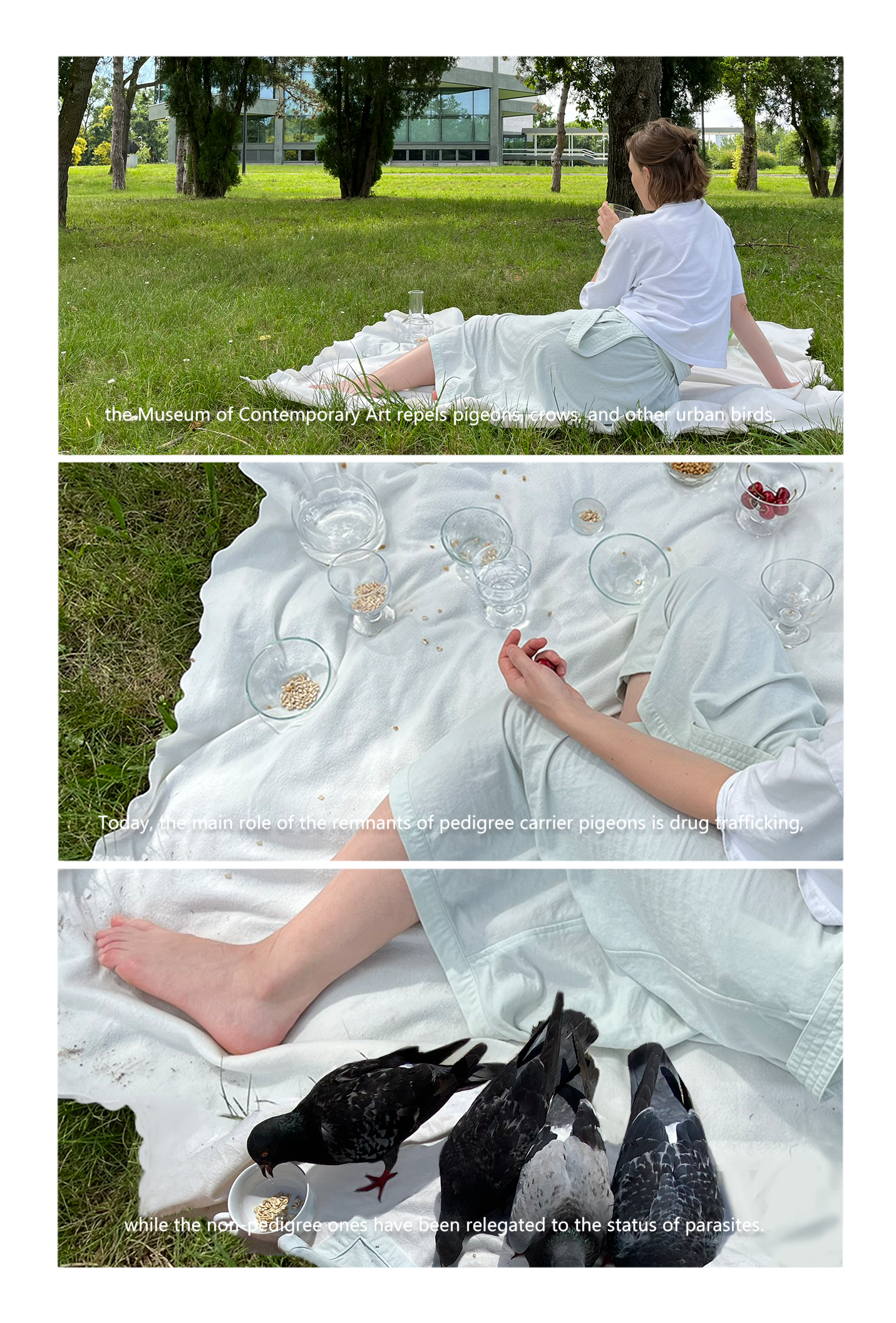
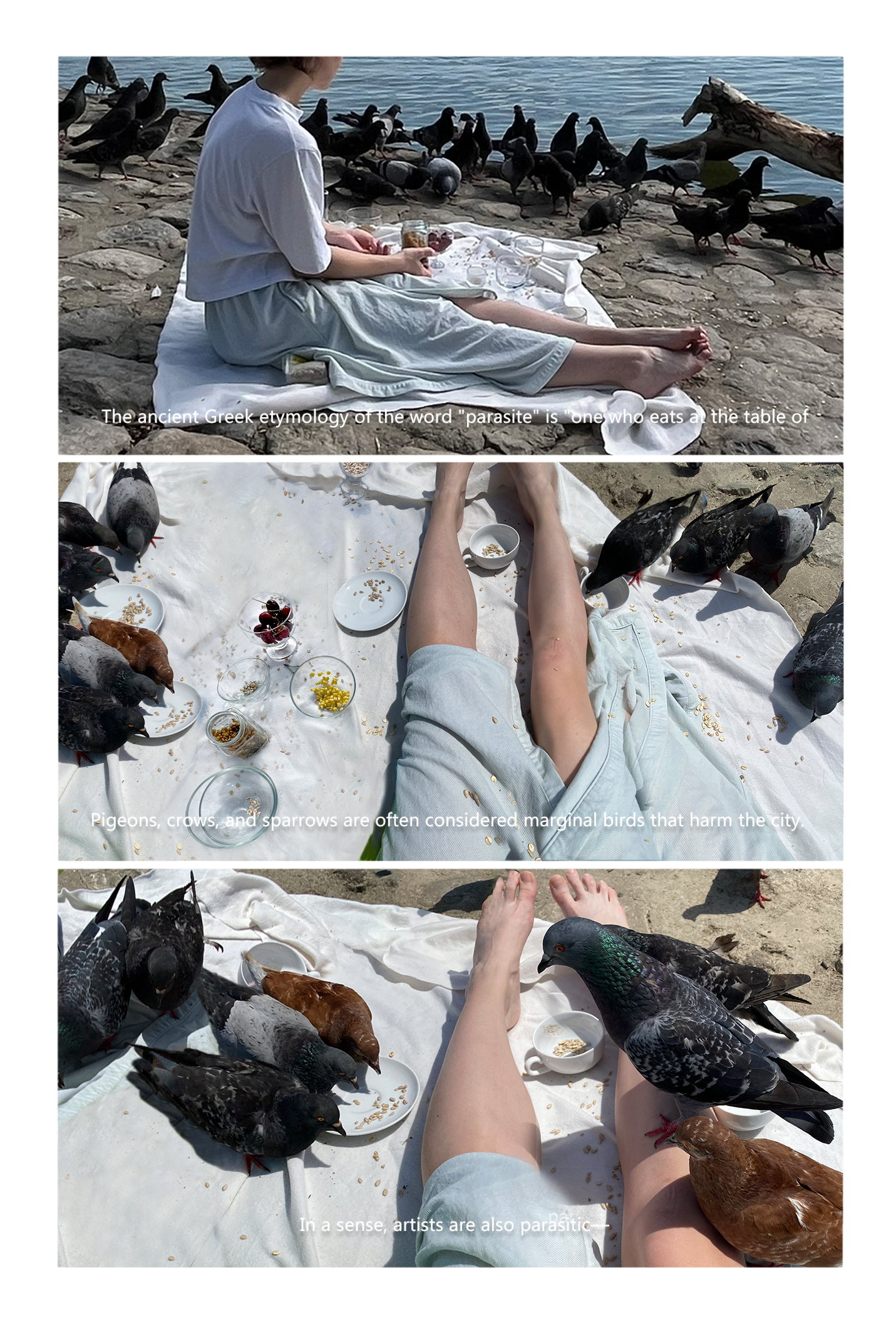

Video documentation of the happening series.
Video and video montage: Vladislav Glumov
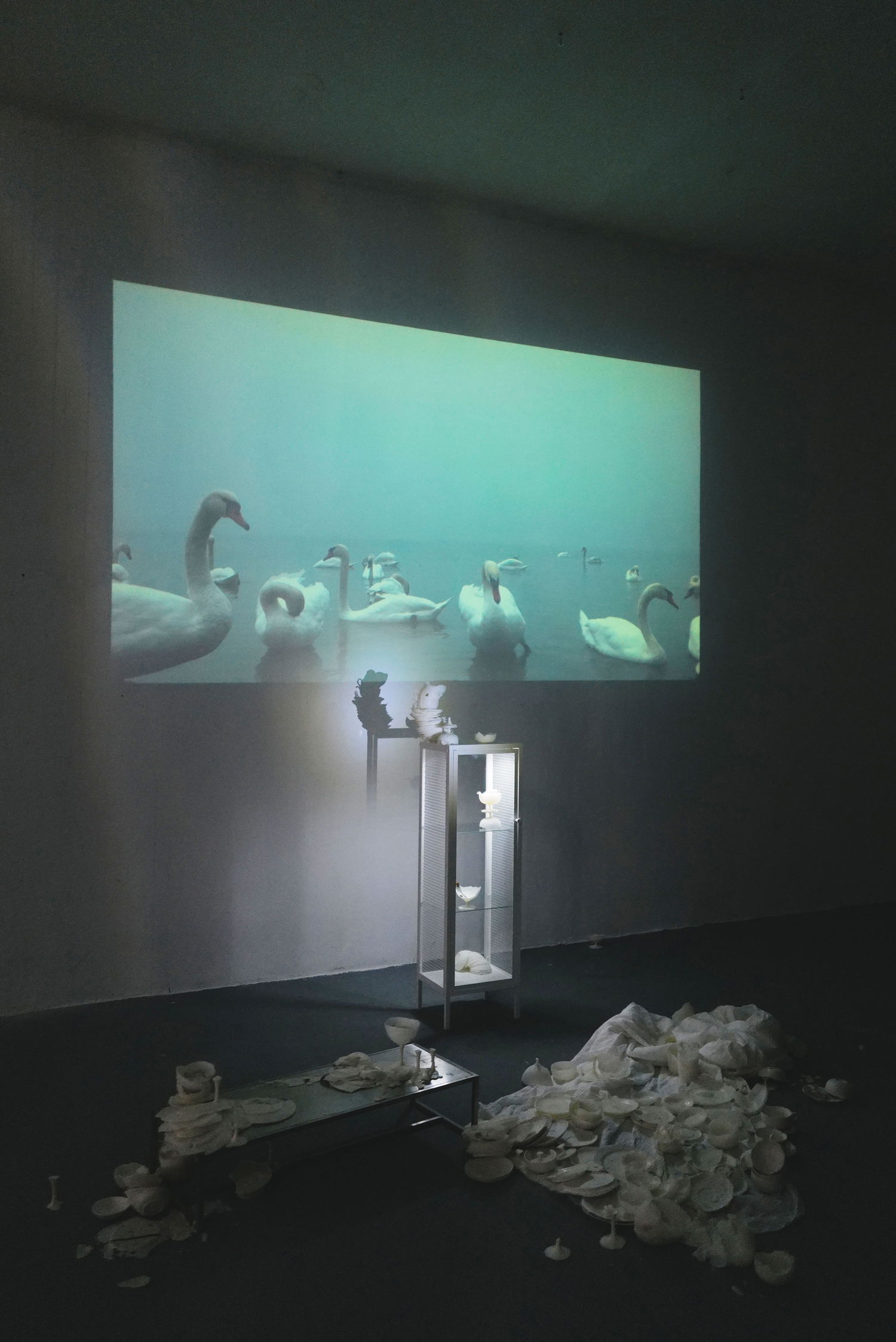
Exposition during the exhibition Any Coincidences Are Accidental in Kvaka22 gallery.
Video documentation is accompanied by the wax casts of the dishes the artist used during the happening sessions.
All the photographs of the exposition made by Kristina Razumova
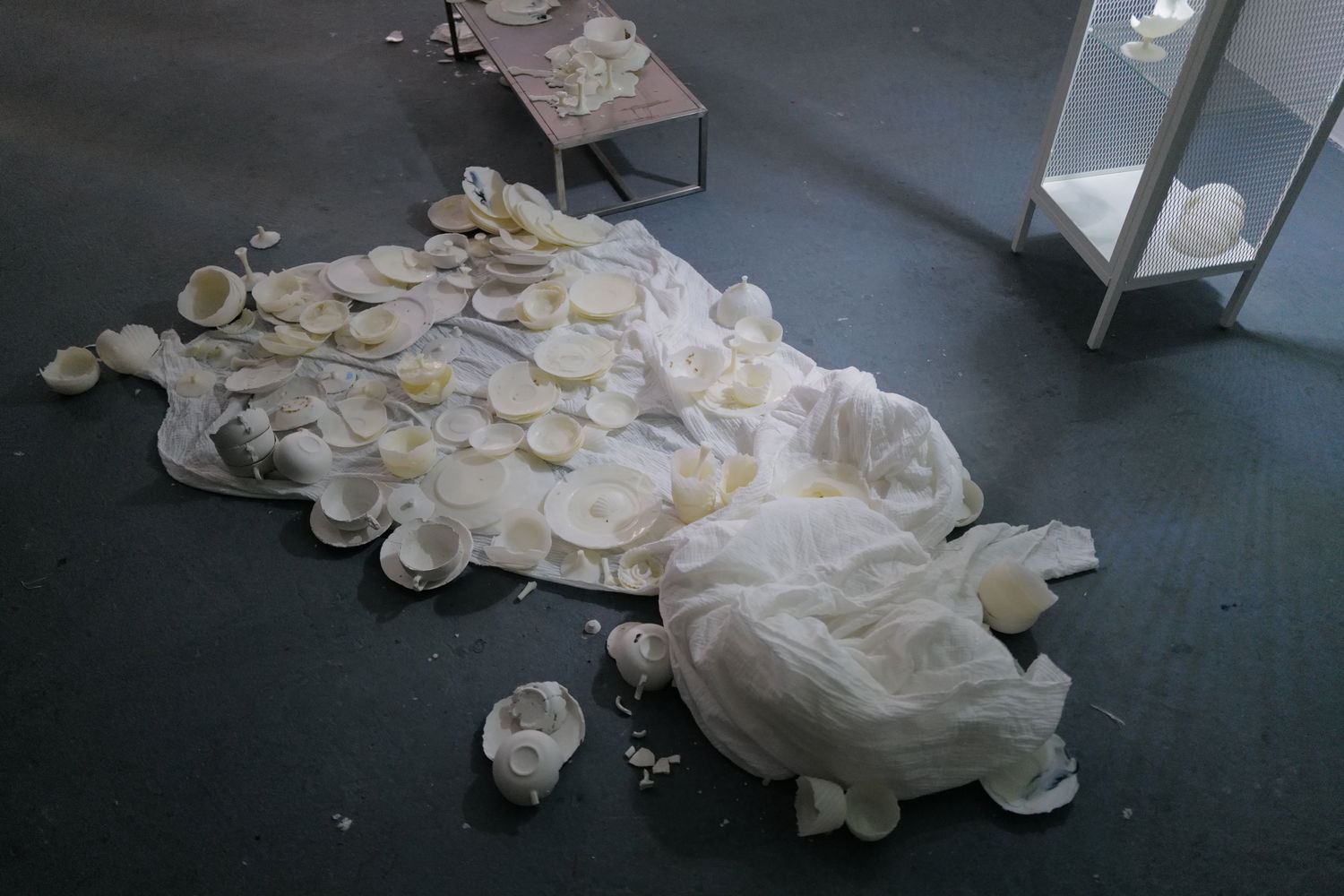
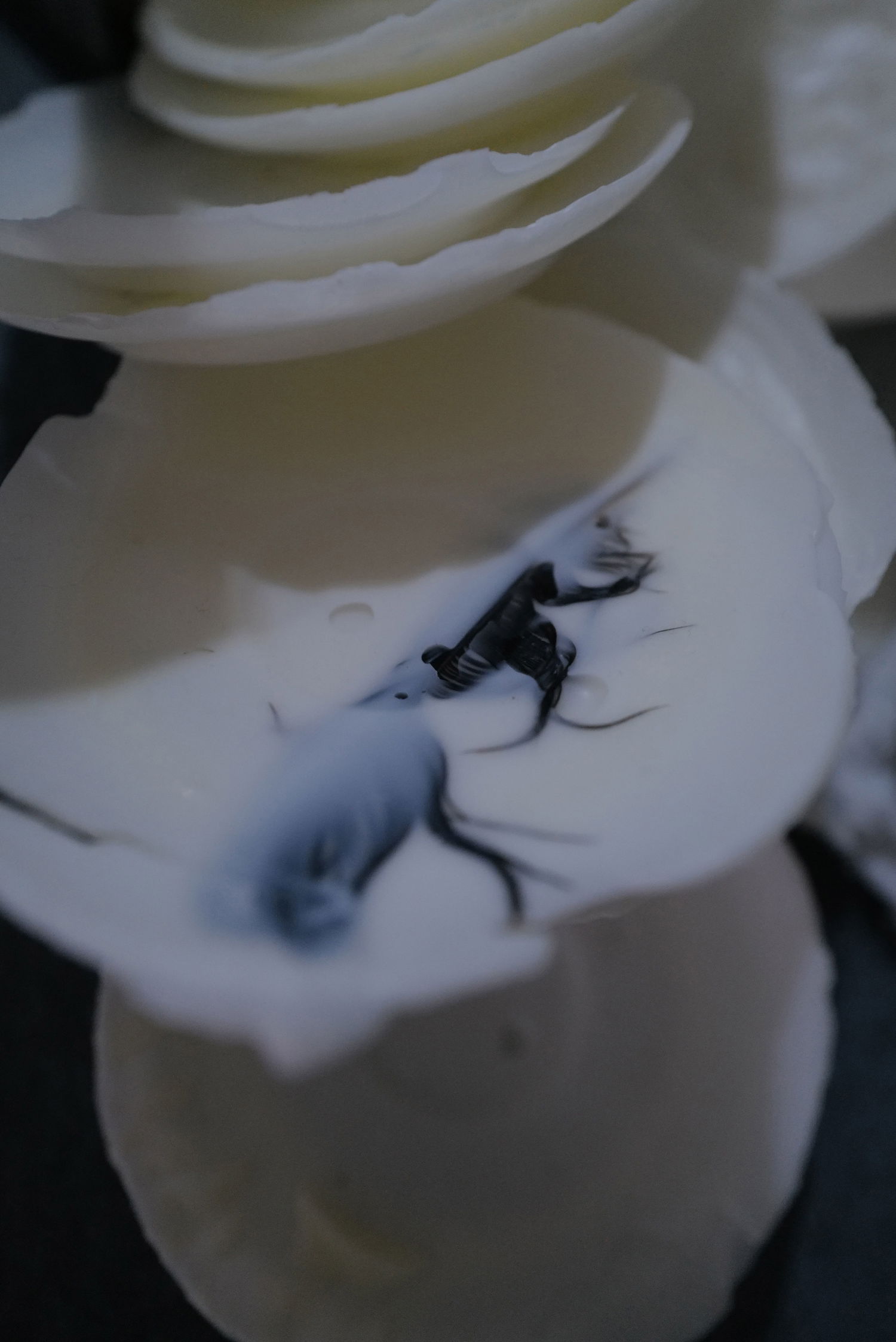
The wax used for the casts was mixed with litter the artist gathered after each picnic session thus forming a kind of archive. So far, the collection of casts has reached approximately 200 items.
